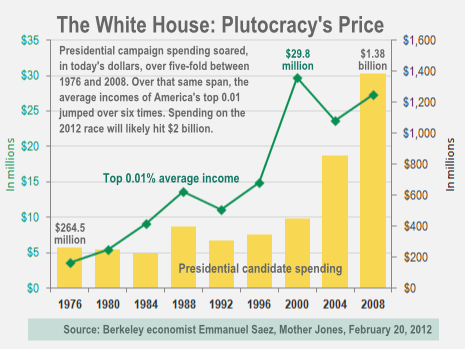Cindy Sheehan talks to President Chavez

Transcript of Cindy Sheehan’s Soapbox Interview with President Hugo Chavez
You can also LISTEN to the interview HERE.
Transcribed by Regina Freitag | Original Translation by Eva Golinger
Interviewer: Cindy Sheehan
Cindy Sheehan: Welcome to this video and audio audition of Cindy Sheehan’s SoapBox.
Presidente Chavez, thank you for being on the show, thank you for this interview and thank you for allowing me to bring the truth about Venezuela and about you and about your revolution to the people of the United States.
Before the revolution, Venezuela was a nation that was ruled and used up by the oligarchy, the elite. How did your revolution begin, how did it manage to remain relatively peaceful?
Hugo Chavez: Thank you Cindy, for this interview, for your efforts, that are so honorable and notable, to try to find out our truth and to contribute to its diffusion. And we wish you much luck in your struggles, which are ours as well, against war, for peace, for freedom and equality and against imperialism. We accompany you in your struggles. You and the people of the United States. We love them the same. The bourgeoisie of Venezuela has always dominated the country, for more than a hundred years. And they dominated it with force, using violence, persecution, assassination and disappearances. Unfortunately, the Venezuelan history is a history full of a lot of violence, violence from the strong against the weak. In the 20th century, Venezuela, which was dominated by the oligarchy and the bourgeois state, the rich, the wealthy, produced a reversed type of miracle, we could say. Venezuela was the first exporter of oil from the beginning of the 1920s until the 1970s. One of the largest producers of petroleum in the world throughout all the 20th century. And when the 20th century ended, with the domination of the bourgeoisie, despite all the wealth, Venezuela had more than 70% poverty and 40% extreme poverty, misery, misery, misery. So that generated an explosion, a violent one. All explosions are violent. An explosion of the poor, to liberate themselves. We were remembering just 2 days ago in Caracas. You were there with us, with our people. 21 years ago, the people woke, arose in a big explosion. And as military we were used by the bourgeoisie to massacre the people, children, women, and older people. And then that awoke something in the young military folks, a consciousness of pain and then we joined with the people. We had two rebellions, military rebellions, popular (inaudible ). A revolution isn’t exactly peaceful. As you said it was relatively peaceful.
Cindy Sheehan: Yes, relatively, yeah
Hugo Chavez: Just like all true revolutions.
Cindy Sheehan: But doesn’t the violence of revolutions sometimes come from the counter-revolution? And the Bolivarian revolution that has transferred power and wealth to the people is an inspiration and has remained relatively peaceful.
Hugo Chavez: Yes, we got the power in a peaceful way.
Cindy Sheehan: Right.
Hugo Chavez: Exactly, and we have been able to maintain it relatively peaceful. We’ve never used violence. They’ve used it against us. The counter-revolution. So the central strategy of our peaceful and socialist revolution is to transfer the power to the people. I’m sure you have been able to see some of it with your own eyes, in the neighborhoods of Caracas.
Cindy Sheehan: Yes I have.
Hugo Chavez: We have made efforts were to help the people to be sovereign. When we talk about power, what are we talking about, Cindy? The first power that we all have is knowledge. So we’ve made efforts first in education, against illiteracy, for the development of thinking, studying, analysis. In a way, that has never happened before. Today, Venezuela is a giant school, it’s all a school. From children of one year old until old age, all of us are studying and learning.
And then political power, the capacity to make decisions, the community councils, communes, the people’s power, the popular assemblies.
And then there is the economic power. Transferring economic power to the people, the wealth of the people distributed throughout the nation. I believe that is the principal force that precisely guarantees that the Bolivarian revolution continues to be peaceful.
Cindy Sheehan: Wonderful. In a speech the other day, you said that the United States demonizes you, demonizes Venezuela and the revolution. I of course have seen it with my own eyes and have been a defender of you and Venezuela and the revolution. Why do you think the Empire makes such a concerted effort to demonize you?
Hugo Chavez: I think for different reasons. But I came to the conclusion there is one particular strong reason, a big reason. They are afraid, the Empire is afraid. The Empire is afraid that the people of the United States might find out about the truth, they are afraid that something like that could erupt on their own territory. A Bolivarian movement. Or a Lincoln movement. A movement of citizens, conscious citizens with the goal to transform the system. Imperial fear killed Martin Luther King. The only way to stop him was to kill him and repressing the people of the United States. So, why do they demonize us? They know – those who direct the Empire – they know the truth. But they fear the truth. They fear the contagious effect. They fear a revolution in the United States. They fear an awakening of the people in the United States. And so that’s why they do everything they can. And they achieve it, relatively, that a lot of sectors in the United States see us as devils. No one wants to copy the devil.
Cindy Sheehan: Right.
Hugo Chavez: Unless they are devils too. And the people aren’t devils. The people are the voice of God.
Cindy Sheehan: Well, one of the biggest names they call you in the United States is dictator. Can you explain to my listeners and the people, for the benefit of this documentary why you are not a dictator?
Hugo Chavez: In the first place, personally, I am against dictatorships. I’m an anti-dictator. We are here in Uruguay, in Montevideo. You know how many dictatorships were in this country. The Guerilla army. I’m an anti-Guerilla. In addition to that, from a political point of view, I’ve been elected one, two, three, four times, by popular vote. In Venezuela, we have elections all the time. Every year, we have elections in Venezuela. One time, Lula, the president of Brazil… when he was in Europe, someone asked him “Why are you friends with that dictator Chavez?” And Lula said a big truth: “In Venezuela, there is an excess of democracy. Every year there are elections. And if there aren’t any, Chavez invents them. Referendums, popular consultations, elections for governors, mayors. Right now, soon we are starting national assembly elections, this year. In 2012 there is going to be a presidential election again. What dictator is elected so many times? What dictator convenes referendums? I’m an anti-dictator. I am a revolutionary. A democratic revolutionary.
Cindy Sheehan: Well, I have witnessed this revolution. I’ve witnessed the empowerment of the people of Venezuela, which is very inspiring, because the people in the United States don’t feel this empowerment. I even rode the Metrocable, and I’m afraid of heights. But I went out to San Augustin and then walked down the steps and saw how that so-called dictatorship has made the life of the people much better here in Venezuela. Also in the commemoration of the Caracazo you announced that you will again going to run for president in 2012. You’ve come a long way, but there is still a long way to go. What do you still think needs to be accomplished as far as infrastructure and the needs of the people in Venezuela?
Hugo Chavez: To tell you in a mathematical way, despite everything we’ve done in education, healthcare, infrastructure, housing, employment, social security, etc., mathematically, I believe, of everything we’ve done and we have to achieve for the people, we have achieved about 10%. It’s been 200 years of abandonment. The people have been abandoned. All the wealth of the country was in the hands of the elite. We talk about the bicentennial cycle, 2010 to 2030, we have to work really hard. In every aspect, infrastructure etc. I hope that you, in a few years, won’t just go up in the metrocable in San Augustin, but all of Caracas is going to have metrocables, and everywhere, every place, housing, reconstruction in poor neighborhoods, the construction of new cities for the people and dignified housing, there is still a lot to do, to achieve what Simon Bolivar said. Bolivar taught us…
(Pres. Evo Morales comes in)
Hugo Chavez: Oh look! Evo is here. Evo, come and sit down! Bolivar taught us that the best government is the one that gives the people the best amount of happiness. That’s our goal. The best, the largest amount of happiness.
My friend Evo, the president of Bolivia, who just got here, he is an indigenous leader! Brother how are you?
Evo Morales: Good, good.
Cindy Sheehan: Presidente Morales. Mucho gusto. So nice to meet you.
Hugo Chavez (introduces Cindy): Cindy Sheehan. She is a fighter for peace, against the war. She is a US citizen. One of her sons died in Iraq. So, she’s interviewing us. And maybe you want to answer a question.
Evo Morales: (gives Indian blessing)
Hugo Chavez: To live well. It’s a Mala Indian philosophy. To live well, a good live. To live well, spiritually, intellectually, physically, that’s what it’s about.
Cindy Sheehan: Thank you, that’s what it should be about. I have one final question.
Thank you for your generosity. This has been really wonderful. Maybe Presidente Morales could have some input about this too. We see your rise to power in Venezuela as kind of a grassroots movement that has been spreading and has helped President Morales in Bolivia, and we see people all over South America taking back the power. Because the power belongs in the hands of the people. A couple of weeks ago in the United States, a man flew his airplane into the tax building in Austin, Texas. Did you hear about that?
Evo Morales/ Hugo Chavez: Yes.
Cindy Sheehan: There is much frustration with the system. And there is a lot of that frustration in the United States. But instead of flying planes into buildings we should find each other and organize. In the United States of course, we are now a system that is also for the elite, ruled by the elite, it’s a “corporatocracy”, it’s for the corporate elite. Of course, in my opinion, I believe the United States need the same grassroots revolution, power back to the people, that you’ve all had here in South America. Can you give us some words of inspiration to encourage us, to give us the courage and heart for a true revolutionary change?
Hugo Chavez: We were the same, dominated, persecuted, and also there was a lot of desperation, just like that man who flew the plane into the building. There is a lot of that, of lot of those impulses, suicidal tendencies. Now, that’s NOT the path. The path is consciousness, a conscious awakening. Evo was persecuted, from very young, I met him when he was an Assembly member, and they threw him out of Congress, and they persecuted him, they jailed him, a lot of his fellow strugglers died. And us too, we had our own experiences. A lot of our brothers died as well, a lot of us went to prison. But consciousness. That’s why you’re doing the right thing. The path is not to fly a plane into a building. It’s to create consciousness. And then the rest will come on its own. I’d like to take this moment to say hello to people of the United States. And us here in the South, we have a lot of faith. And the people in the North are going to wake up. Just like you have woken. Just like many have had an awakening. You can do great changes in the United States, and in a peaceful way, I hope. Because, what happens in the United States, those changes in the United States depend a lot…the future of the world depends on that a lot.
(Pres. Chavez addresses Pres. Morales) Evo, would you like to say something?
Cindy Sheehan: Please!
Evo Morales: I just finished a meeting with Eduardo Galliano.
Cindy Sheehan: Oh, I know him.
Evo Morales: He’s so inspirational with the people, about nature. Galliano is also going to the inauguration of Pepe Mujica. (Pres. Morales and Pres. Chavez talk to each other.) And he’s going to bring some strategies, proposals, and we’re going to have a meeting with Galliano and the cocoa workers …
Cindy Sheehan: Oh. Very wonderful.
Evo Morales: To talk about equality and our experiences. The difficult things, how to unite us and to raise our consciousness. What you’re talking about. The power resides with the people. I was just with Commandante Borhez, Thomas Borhez from Nicaragua. We were talking about issues of consciousness in Peru, in Colombia, on how to build a big political movement. But the issue is unity. In my experience, first the (inaudible), the marginalized, we united first, the farmers and the indigenous. And from that it went on. Just like that unity, we need to do that with the political parties on the left and then the workers unite. Those are the forces that we have, the power that the people have. To get there is hard, you have to raise consciousness.
Cindy Sheehan: My documentary is called “We are all Americans”. It comes from when I was being interviewed on Fox News and Sean Hannity told me how could I meet with the anti-American dictator Hugo Chavez. And I said: ”But Sean, he is an American”. We are all Americans and that’s where the consciousness has to be raised and the unity has to come from in realizing that.
And so, it’s been my highest honor to sit with you, Presidente, thank you for your hospitality and that of Venezuela and to finally meet you. I was invited to Bolivia to help to support you for your recall, but I was running for Congress against Nazi policy in the United States. It was a bad time. I lost. (laughs) I didn’t win.
Hugo Chavez: But we will prevail.
Cindy Sheehan: We will be victorious. Thank you so much.
Hugo Chavez: We have to end, but I want to say something to you. Just about 5 days ago, we were in Cancun. We were on our way out from the hotel and the press was there, and there were some tourists – from California. So I went up to them and I said hi to a woman and her child and another woman. A lot of affection. It was spontaneous. And then I told my friends. I found tourists. I found US tourists. Older adults, young women, men, adolescents. I’ve met with them in Japan, Moscow, Beijing, in the Caribbean, everywhere in the world, in Buenos Aires. I’ve never felt one look of hate, but rather affection, so I think that despite everything, I believe the people of the United States in the depths of their hearts, they know how to appreciate where lies are and where the truth is. That’s why we have such hope. And here is my heart for those people of the United States. They call us anti-US-leaders, anti-American leaders, but we are not. We are anti-imperialist. But we love the people of the United States. We love humanity.
Cindy Sheehan: Muchas Gracias!

_______________________________________________________________________________
¶
ADVERT PRO NOBIS
IF YOU CAN’T SEND A DONATION, NO MATTER HOW SMALL, AND YOU THINK THIS PUBLICATION IS WORTH SUPPORTING, AT LEAST HELP THE GREANVILLE POST EXPAND ITS INFLUENCE BY MENTIONING IT TO YOUR FRIENDS VIA TWEET OR OTHER SOCIAL NETWORKS! We are in a battle of communications with entrenched enemies that won’t stop until this world is destroyed and our remaining democratic rights stamped out. Only mass education and mobilization can stop this process.
You can also LISTEN to the interview HERE.

It’s really up to you. Do your part while you can. •••
Donating? Use PayPal via the button below.
THANK YOU.
____________________________________________________________________________________________________




 They don’t make Republicans like Herman Andersen anymore. Andersen, a Minnesota congressman, opposed moves after World War II to cut income taxes by a fixed percent “across the board.” Such cuts, he charged, conceal big giveaways to America’s rich. To save workers $45 off their taxes, Andersen asked, why must we “give our million-dollar-income friend $90,000?” A good question for New Jersey governor Chris Christie. His
They don’t make Republicans like Herman Andersen anymore. Andersen, a Minnesota congressman, opposed moves after World War II to cut income taxes by a fixed percent “across the board.” Such cuts, he charged, conceal big giveaways to America’s rich. To save workers $45 off their taxes, Andersen asked, why must we “give our million-dollar-income friend $90,000?” A good question for New Jersey governor Chris Christie. His  Billionaire David Koch is standing in the Moorish-tiled entry hall of his Florida manse, dressed in white pants and blue blazer. He’s
Billionaire David Koch is standing in the Moorish-tiled entry hall of his Florida manse, dressed in white pants and blue blazer. He’s 
 A half-century ago, President Dwight Eisenhower warned Americans against a “military-industrial complex” he saw dominating and distorting the national political scene.
A half-century ago, President Dwight Eisenhower warned Americans against a “military-industrial complex” he saw dominating and distorting the national political scene.